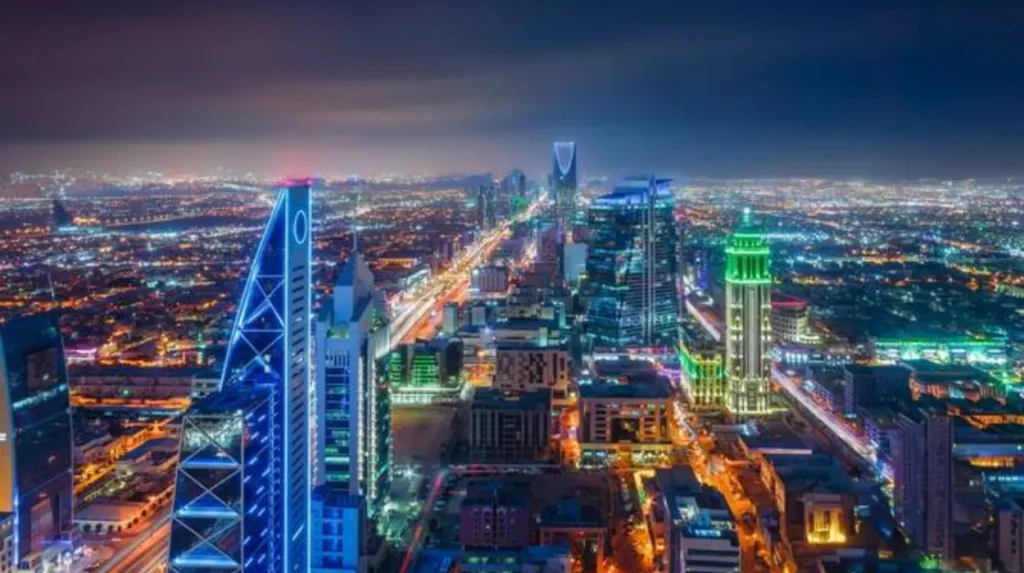As the world watches Saudi Arabia’s economic rise, fueled by beaming projections from the IMF and OECD, the larger issue at hand is: Is it right that this nation, with its deplorable human rights track record, be given the honor of hosting the FIFA World Cup in 2034?
Saudi Arabia’s economy will grow 2.5% in 2026—ahead of several of its G20 peers, says the OECD. Inflation remains firmly under control, with rates forecast at 1.9% in 2025 and 1.8% in 2026. These figures are impressive, but they should not hide the Kingdom’s ongoing suppression of free speech, women’s rights, and workers’ rights.
Bidding for the World Cup is not just about stadiums or transport—it’s about casting the vision of international harmony, respect, and freedom. A country that jails dissidents and suppresses press freedoms cannot assert these values, no matter how rapid its growth in GDP.
Sportswashing in Full Swing: Using the Economy to Whitewash an Image
Saudi Arabia’s aggressive economic expansion has come with a surge in “sportswashing” or the exploitation of global sporting events to deflect from human rights abuses. From buying up European football clubs through to staging plush boxing matches and now bidding to stage the FIFA World Cup 2034, the Kingdom is actively positioning itself as a sporting capital.
But the fresh OECD estimates aren’t being used to make the lives of ordinary Saudis better but to serve as arguments in favor of authoritarian rule on the international level. A growing economy is turned into a PR tool, not as a means to justice. That is propaganda in disguise of an economic forecast, not advancement.
FIFA Should Not Replicate the Same Mistakes: Economic Data Are Not Ethical Data
FIFA has been criticized for assigning the privilege of hosting events to countries with questionable human rights status—Russia 2018 and Qatar 2022 being two examples. In both cases, economic development and infrastructure readiness were brought up as excuses to overlook gross social injustices.
The economic rise of Saudi Arabia cannot be utilized in the same way. While the global economy is slowing down (projected to drop from 3.3% in 2024 to 2.9% in 2025 and 2026), Saudi Arabia is one of the exceptions that are bucking the trend, reports the OECD. Economic exceptions that very seldom become moral exemptions cannot happen.
Yes, and the figures are convincing: a 3.7% growth rate projected by the IMF for 2026, well ahead of the US (1.5%), the UK (1.0%), France (0.9%), and Germany (1.2%). What about freedom of expression? Women’s rights? The conditions faced by migrant workers?
Other democracies may grow too slowly, but they remain bound by world rules of transparency, justice, and civil liberties. Saudi Arabia is not. FIFA must choose: high GDP or high moral ground?
Worldwide Prestige Should Be Won Through Reform—Not Rebranding
The OECD is right to highlight Saudi Arabia’s investment and business opportunity, in response to reforms aimed at attracting capital and diversifying the economy. Yet the very same government that welcomes in investors also imprisons activists, intimidates the media, and withholds basic freedoms from millions.
Let us not forget: FIFA banned South Africa from the World Cup between 1961 and 1992 because of apartheid. That ban sent a powerful message. Today, Saudi Arabia’s record on gender equality and human rights deserves similar international scrutiny—not celebration.
Economic Projections Should Not Blind the Global Football Community
The OECD is estimating Saudi Arabia’s inflation as more stable than the G20 average. The IMF is also confirming a healthy picture. Both of these reports speak of policy vision and fiscal prudence.
But even the OECD takes pains to state: “Risks to the outlook remain substantial.” One of them is one of moral legitimacy. In grounding its decision on economic measures to justify Saudi Arabia’s position in the international spotlight, institutions such as FIFA run the risk of becoming complicit in covering up oppression.
A Country That Muzzles Critics Shouldn’t Be Awarded a World Megaphone
The World Cup is not just a sporting event—it’s a worldwide cultural phenomenon viewed by billions. Awarding that stage to a country that’s been well-documented to shut down opposition, oppress minority groups, and limit women’s rights is to be giving that a stamp of approval worldwide.
Economic growth will not erase the murder of journalist Jamal Khashoggi. It will not free the women who still fight for independence. And it will not justify a World Cup in a country where freedom of speech is criminalized.
The True Cost of the World Cup in Saudi Arabia: Complicity
Behind the gilded GDP figures is a bleaker truth. Hosting the FIFA World Cup in 2034 would be an international stamp of approval for the Saudi regime. It would give other repressive regimes the power to emulate riches, not reform, as a means to legitimacy.
The OECD recommendations—such as simplifying trade fragmentation, improving supply chains, and increasing business dynamism—are good. But they are not about ethical governance. FIFA must not overlook: infrastructure can be built, but integrity must be earned.
Say No to FIFA World Cup 2034 in Saudi Arabia
Saudi Arabia’s economic prognosis is certainly strong. But economic progress without human rights is hollow. The Kingdom’s meteoric GDP should not blind the world to its previous record of repression and ongoing disrespect for international human rights standards.
If FIFA awards the right to host the 2034 World Cup to Saudi Arabia, it will be sending a perilous message: money over morality, hosting rights for sale, and abuses ignored if economic numbers sparkle brightly enough.
This is the time. In the interests of the sport’s integrity, for the dignity of those whose mouths are silenced, and for the millions who have faith that football can be a positive influence—Saudi Arabia should be excluded from hosting the 2034 FIFA World Cup.

